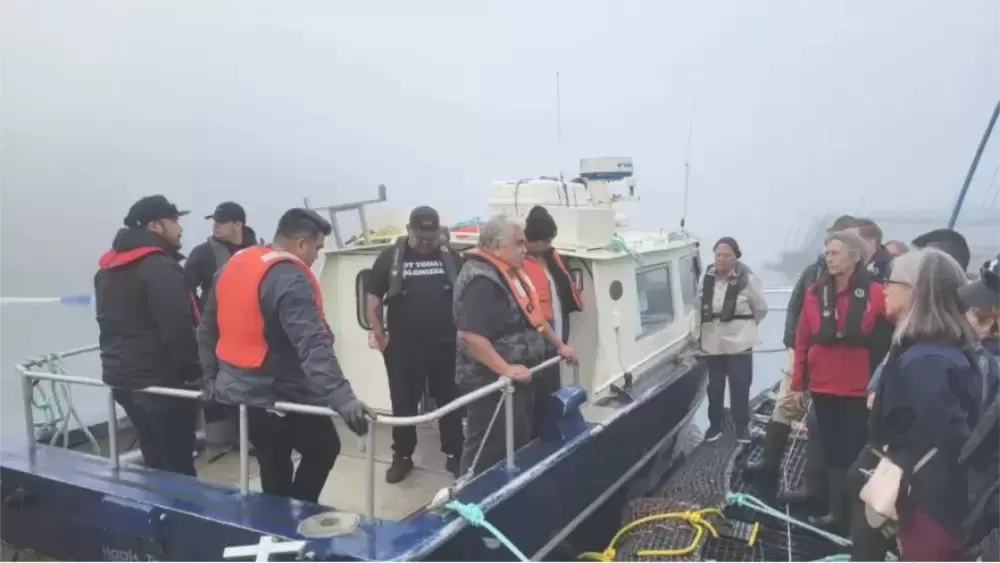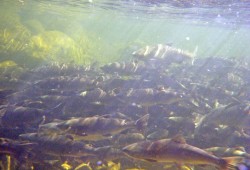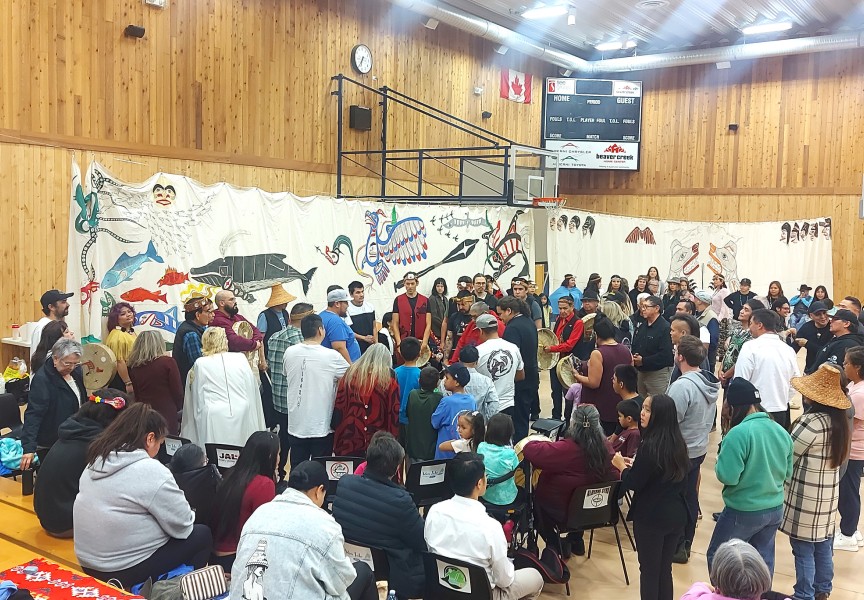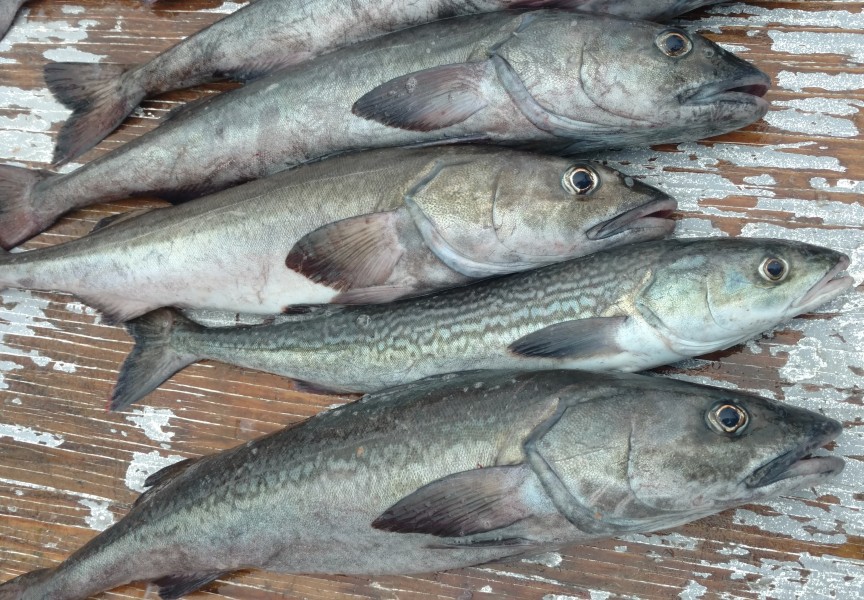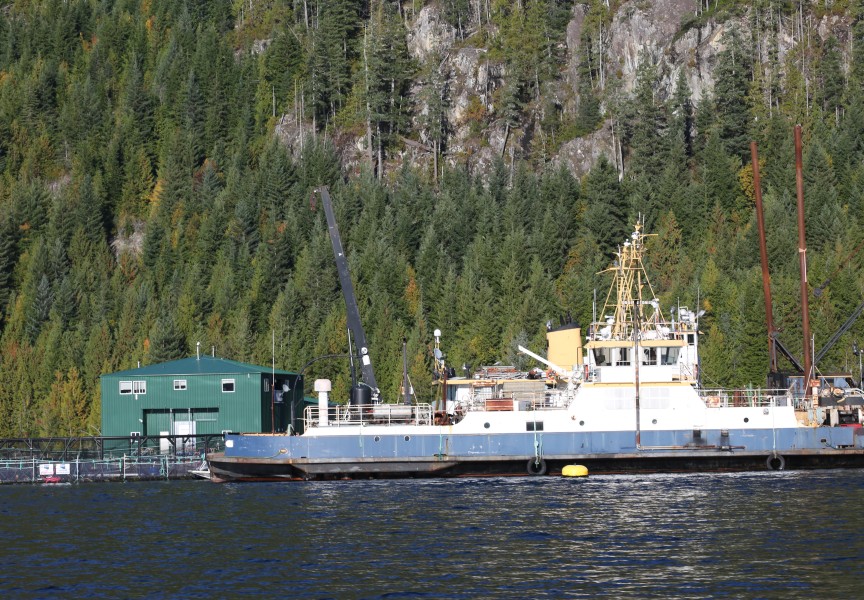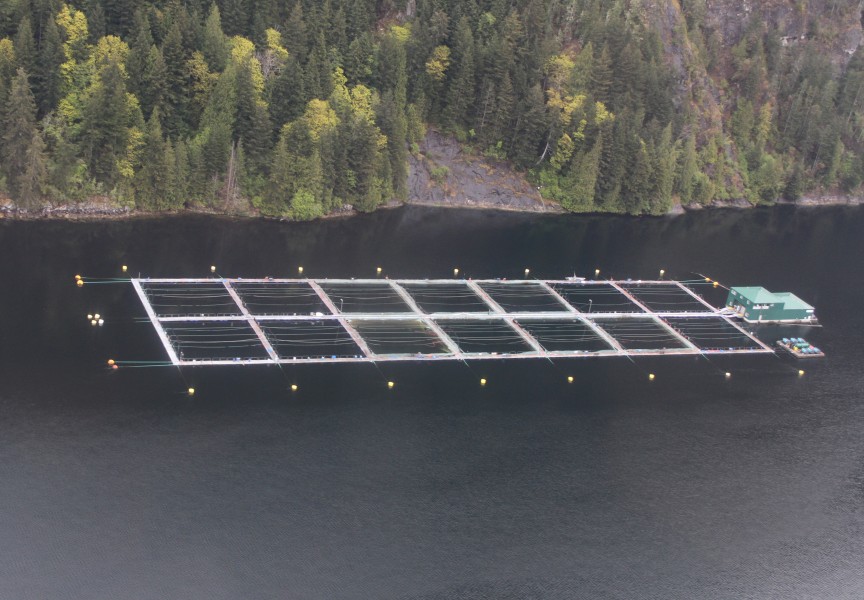Amid the fray of competing interests from environmentalists, advocacy groups, industry representatives and government agencies, two First Nations claim their inherent rights have been broken with the DFO’s closure of fish farms in the Discovery Islands.
The Wei Wai Kum and Wei Wai Kai Nations have applied for a judicial review of the DFO’s recent decision.
Meanwhile, the Coalition of First Nations for Finfish Stewardship warns that the federal department’s decision to permanently discontinue the sites northeast of Vancouver Island will send ripple effects across the industry, affecting other Indigenous communities that rely on salmon farms for revenue and employment. Encompassing 276 Indigenous employees, 17 First Nations in B.C. have formal agreements with salmon farming companies, including Ahousaht, Ehattesaht and Tla-o-qui-aht in Nuu-chah-nulth territory.
“This court challenge is not about whether we support fish farming or not – it is about our inherent right as title holders to decide how our territory is used, and determine for ourselves if, when, and how fish farms could operate in the future,” says Wei Wai Kai Chief Councillor Ronnie Chickite in a press release issued by the coalition. “We strongly believe the minister’s decision to not reissue licences in our territories was a political decision heavily influenced by nations who do not have title in our territory.”
The closure affects 15 net pens in the Discovery Islands region, which were operated by different aquaculture companies. The sites have sat empty for two years, as an initial announcement to close them in late 2020 by Canada’s former fisheries minister Bernadette Jordan prohibited the restocking of the farms after the existing Atlantic salmon were removed.
Since then, the Discovery Islands sites have sat in limbo, while other salmon farms on the West Coast continued to operate amid a mandate for Fisheries Minister Joyce Murray “to create a responsible plan to transition from open net pen salmon farming in coastal British Columbia by 2025.” All of B.C.’s salmon farming licences were renewed last summer for another two years, except the Discovery Islands sites.
“The state of wild pacific salmon is dire, and we must do what we can to ensure their survival,” said Murray in a Feb. 17 announcement of the discontinuation of the Discovery Islands sites. “This was a difficult but necessary decision. By taking an enhanced precautionary approach in the Discovery Islands area, the Government of Canada will help ensure the well-being of wild pacific salmon for our children and grandchildren.”
The Committee on the Status of Endangered Wildlife in Canada has assessed 31 salmon units from the Fraser River watershed, identifying that 11 are endangered, two are threatened and seven constitute “special concern”.
“Many First Nations along the Fraser River were unable to access wild salmon needed to sustain their FSC [food, social ceremonial] needs,” stated the DFO.
Over the last year Murray has met multiple times with First Nations that have a stake in salmon farming. In November the Wei Wai Kai and Wei Wei Kum proposed to reintroduce farming operations on a limited scale, one site at a time under its oversight on a trial basis.
“This staggered approach would have encouraged Indigenous-led detailed research and analysis of the impact of finfish farms in our waters, blending Western science and traditional ecological knowledge,” said Wei Wai Kum Chief Councillor Chris Roberts in a statement.
“Our proposal was entirely ignored,” said Chickite.
“Rejecting this proposal is rejecting our right to decide for ourselves, with our own research and knowledge, whether salmon farming was a fit for our communities,” added Roberts. “It’s a clear lack of recognition of our inherent right to self-determination.”
Further north up the coast, Isaiah Robinson has been watching the situation unfold as an elected councillor of the Kitasoo Xai’xais Nation. Salmon farms in his territory account for $1.7 million in annual revenue, comprising more than half of an economy of $3 million.
“If 51 per cent of our economy is gone, how are these people going to pay for new mortgages, for food, for all these other things we’re hoping to do as a community?” he asked. “It’s concerning for us all in trying to run a business in remote communities.”
For the last 40 years Kitasoo has been building its salmon farming industry. For much of this time advocacy groups have campaigned against the practice, including the Union of B.C. Indian Chiefs, which has called for all West Coast farms to be moved out of the water onto land. A resolution passed by the UBCIC in February even accused the DFO of doctoring evidence to favour the salmon farming industry.
“DFO employees altered a scientific report to misrepresent the significant association between fish farms and wild juvenile salmon’s infestation with sea lice, altering the content to claim that there is no connection between fish farms and sea lice in wild stocks – an act of research fraud,” stated the resolution.
Robinson believes that such opposition to salmon farming has little understanding of how banning the ocean practice could harm a community.
“We would have nothing, other than regular public services here. That’s not an economy we’re able to thrive on,” he said. “Those types of decisions and those types of lobbying groups like the AFN or the BC Union of Indian Chiefs really need to understand the rights and titles of these situations and look at the bigger picture.”
For years the Discovery Islands area has been a focal point in the debate over if salmon farming is threatening wild stocks. A decade ago the Cohen Commission pointed to farming in the area as part of its massive inquiry into the decline of sockeye salmon in the Fraser River.
“Salmon farms along the sockeye migration route in the Discovery Islands have the potential to introduce exotic diseases and to exacerbate endemic diseases which can have a negative impact on Fraser River sockeye,” stated the commission’s final report. “Disease can cause significant population declines, and, in some situations – for example, if a disease were to wipe out a vulnerable stock of Fraser River sockeye – such effects could be irreversible.”
But the Coalition of First Nations has stressed that scientific evidence does not necessarily indicate that salmon farms bring diseases to wild stocks.
“We’ve had world renowned scientists come up and do presentations to our community regarding these diseases that they’re talking about,” said Robinson of work in Kitasoo. “A lot of them, the diseases they get are not from the actual farms or anything like that, they’re just coming from the environment.”

